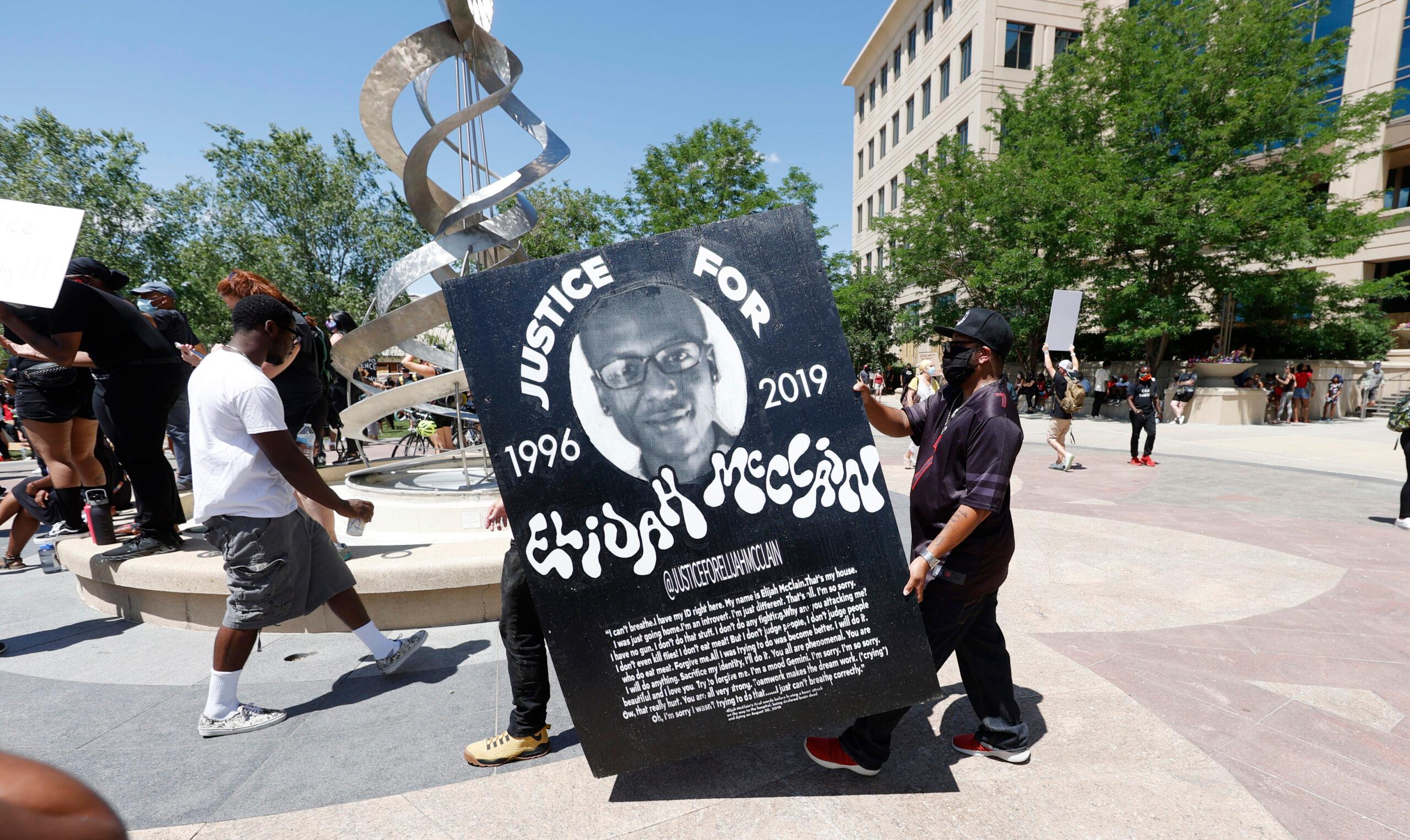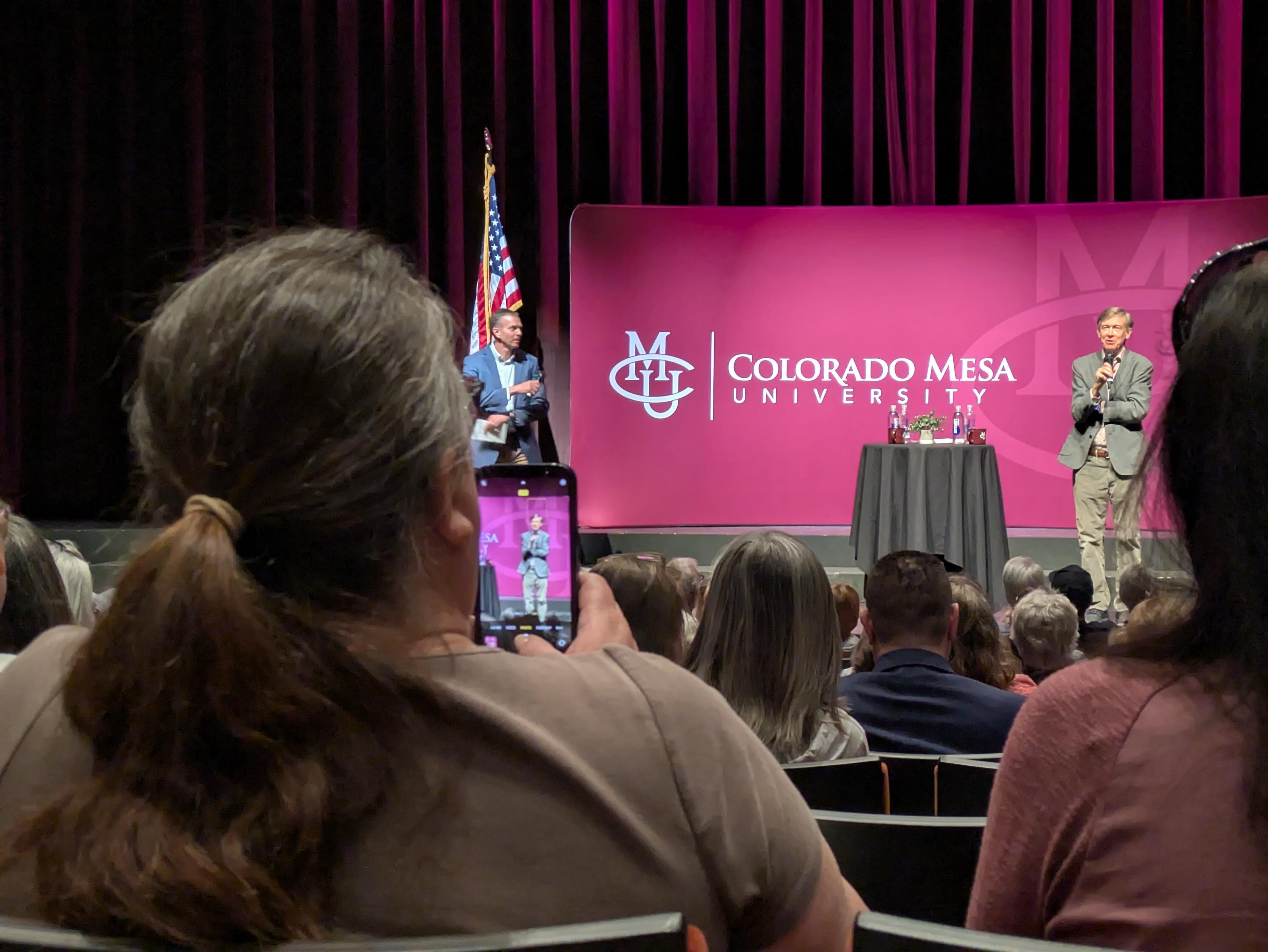
An Adams County district judge on Friday ordered the county coroner to give the public a copy of an amended autopsy report in the 2019 death of Elijah McClain.
But there is a catch.
District Court Judge Kyle Seedorf ruled that the report can be redacted to exclude new information that resulted from a grand jury investigation into McClain’s death — even if that means the entire contents of the amended report are blacked out. The judge gave the coroner seven days to produce the report.
“We’re all in a difficult spot,” Seedorf admitted, noting that it is rare for an autopsy report, normally considered a public record, to be altered by information from an otherwise secret grand jury investigation.
“The coroner can’t produce that, under the oath she’s taken, so there are going to have to be some interpretations, some determinations made of what needs to be redacted,” said Seedorf.
News organizations, he said, may eventually find themselves back in court arguing about the redactions.
Colorado news organizations, led by CPR News, sought the report in advance of the criminal trials of police officers and paramedics who were with McClain in the moments before he lost consciousness, eventually dying following a confrontation with Aurora police.
CPR News filed a lawsuit in district court, seeking the release after the Adams County Coroner denied a public records request from CPR.
McClain's autopsy report was changed following evidence presented to a grand jury that indicted the police officers and paramedics involved
McClain’s death in 2019, after Aurora first responders restrained and sedated him, attracted nationwide attention among the outcry over the deaths of Black men in police confrontations nationwide. Colorado Attorney General Phil Weiser empaneled a grand jury. They returned a 32-count indictment against the three police officers and two paramedics involved.
A contracted forensic pathologist working for the coroner originally listed McClain’s cause and manner of death as “undetermined” and “unknown.” But CPR News reported earlier this month that the autopsy report had since been amended. Monica Broncucia-Jordan, the Adams County Coroner, said it was changed following evidence presented to the grand jury.
The indictment says the grand jury heard from an unidentified forensic pathologist who opined that McClain died from homicide, caused by “acute Ketamine administration during violent subdual and restraint by law enforcement and emergency response personnel.”
It is not known whether the pathologist who told the grand jury McClain died from Ketamine administration is the same one, Dr. Stephen Cina, who previously ruled the cause of death was unknown.
Cina has not responded to questions about the autopsy.
What our lawsuit argues, and what has happened since it was filed
The Adams County Attorney, Heidi Miller, representing the coroner, said in court: “This is an unprecedented situation, we have never had a situation where an autopsy was amended as a result of participation in grand jury proceedings or receiving grand jury information.”
The coroner “is under an order from Denver [District Court] not to provide that information to anyone,” said Miller. The coroner asked the Attorney General for advice after CPR requested the autopsy report, and she was instructed that it was not to be released.
On Sept. 1, Colorado Public Radio reporter Allison Sherry filed a lawsuit seeking access to the amended autopsy report. Less than two weeks later, all of Denver’s major TV newsrooms and the Associated Press joined the suit.
In requesting release of the records, CPR’s attorney, Steve Zansberg, argued that autopsy reports are a public document under the Colorado Open Records Act (CORA), and subject to release, provided that privileged or non-public sections are redacted.
“All the plaintiffs are seeking is the amended certificate of death and accompanying autopsy report that is not subject” to an order sealing grand jury materials, said Zansberg in Adams County District Court.
The attorney general and others dispute that Adams County has the jurisdiction to rule on the records from a statewide grand jury
The attorney general argued that Adams County lacks jurisdiction to rule on the release of records from the statewide grand jury.
The Denver District Court Chief Judge presides over the statewide grand jury, and therefore, “The Denver District Court Chief Judge has the sole authority and jurisdiction to order the release of grand jury materials and any materials derived therefrom,” according to a filing from the Attorney General’s office.
Judge Seedorf, in his ruling, said he had authority to order the release of the amended autopsy report, but questions about the appropriateness of certain redactions could ultimately be decided by the Denver District Court Chief judge.
McClain, who was Black, died in 2019 after Aurora Police responded to a 911 call reporting that the 23-year-old “looked sketchy,” wearing a ski mask while walking home from a convenience store. The police forcibly arrested him, putting him in a carotid hold, and paramedics injected McClain with the powerful sedative Ketamine.
Last year, the city of Aurora paid McClain’s family a settlement of $15 million, the largest known settlement for police violence in Colorado history. An arraignment for the three officers and two paramedics in the criminal trial is scheduled for Nov. 4.









